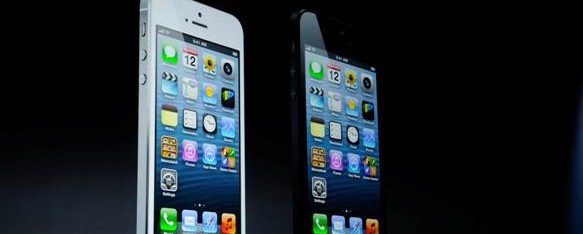Shared via: http://online.wsj.com/article/SB10001424127887323478004578302382005160380.html
SÃO PAULO—Brazilian regulators on Wednesday rejected Apple Inc.’s AAPL -0.19%request to register the iPhone name in that country, setting up a potentially costly legal dispute in one of the world’s fastest-growing smartphone markets.
The agency overseeing patents in Brazil said Wednesday it denied Apple’s trademark application because Brazilian electronics maker IGB Eletrônica SA, better known by its brand name Gradiente, already owned rights to the name.
Marcelo Chimento, spokesman for Brazil’s National Institute of Industrial Property, or INPI, said Apple is contesting the decision, charging that Gradiente failed to make use of the trademark within a five-year window, as required by Brazilian trademark law. An Apple spokeswoman declined to comment.
Unlike in the U.S., Brazilian trademark regulations stipulate that registrations be rewarded on a first-come, first-served basis, regardless of which party used the trademark first, or which party brings more value and recognition to the brand.
Gradiente applied for the IPHONE trademark in 2000, more than six years before Apple submitted its own application and announced its hot-selling device. The Brazilian company won the trademark in January 2008, giving it exclusive use until 2018 under local regulations so long as it produced a product bearing the name within five years. But the company didn’t appear to release a qualifying product until December, just weeks before the deadline, when it announced a smartphone called the “IPHONE Neo One.”
According to Gradiente, the IPHONE Neo One is only available on the company’s website or at one store in a shopping center in São Paulo. Gradiente’s IPHONE runsGoogle Inc.’s GOOG +0.28% Android operating system and is listed at about $304, while Apple’s iPhone 5 starts at $1,220 in Brazil.
INPI is now evaluating Apple’s challenge, Mr. Cimento said. “Gradiente has to prove that it used the brand” in the allotted time, within 60 days, Mr. Cimento said. Meanwhile, INPI has awarded Apple the “iPhone” trademark in four other categories such as software development and clothing.
If INPI rejects Apple’s challenges in 60 days, the Cupertino, Calif.-based company would not have to immediately halt sales of iPhones in Brazil, but would be vulnerable to a fresh battle over intellectual property rights. Legal experts say such disputes are costly and can drag on for years.
Gradiente said in December that it would take “all the measures used by companies around the world” to preserve its intellectual property rights. But a Gradiente spokeswoman declined to comment about the dispute on Wednesday, and declined to say how many of its IPHONEs have been sold since the launch.
Apple has warned in its annual reports that “as the company has grown, the intellectual property rights claims against it have increased and may continue to increase.” In the worst case for Apple, regardless of the validity of infringement claims, the company may be required to pay damages or royalties, or may be subject to injunctions prohibiting the marketing or sales of its products.
Apple doesn’t report its iPhone sales figures in Brazil, but the country is expected to become the world’s fourth largest smartphone market by unit shipments in 2016, according to research firm IDC.
Apple, which has no retail stores in Brazil, sells iPhones here through authorized resellers, mobile operators and its own website. Apple has been working to open its first retail store in Brazil in Rio de Janeiro.
Apple has faced similar disputes before.
Last year, it paid $60 million for rights to the iPad name in mainland China after a series of lawsuits and countersuits with a Chinese company that had registered the trademark first.
In Mexico, a telecommunications equipment firm registered its company name as iFone in 2003, four years before Apple registered the iPhone trademark there. Apple has thus far been unsuccessful in efforts to invalidate the Mexican firm’s name.













